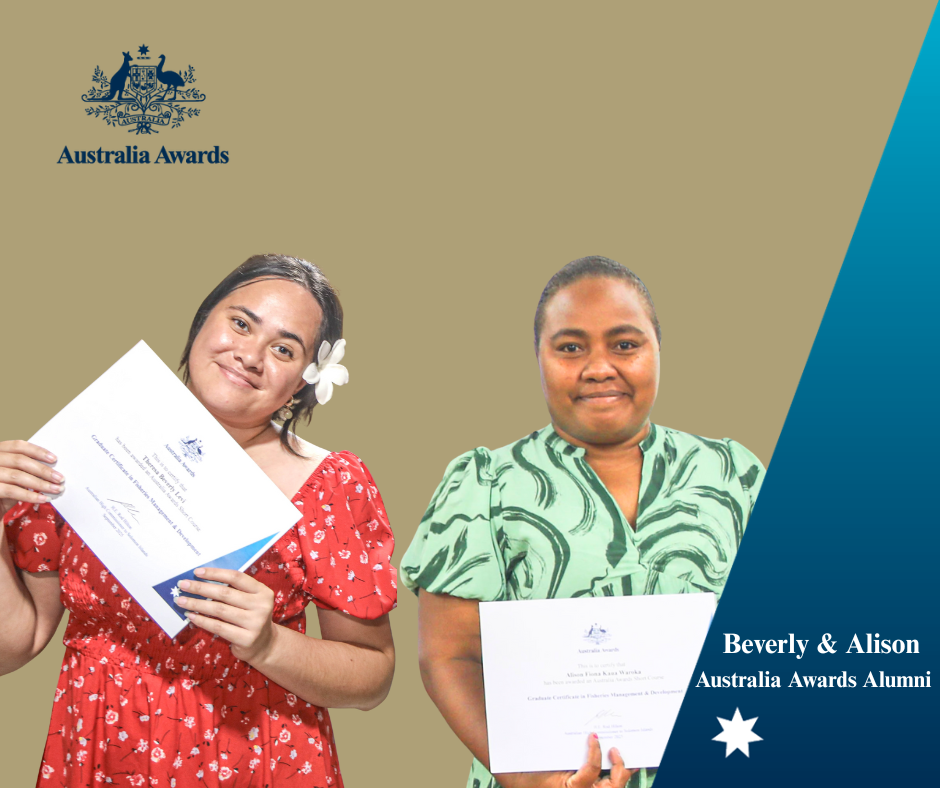
Pacific women driving change towards sustainable fisheries
Across the Pacific, fisheries are more than an industry—they are a lifeline.
They feed families, create jobs, and anchor economies. But this lifeline is under threat from climate change, overfishing, and mounting sustainability pressures.
The solution? Stronger, more inclusive leadership. And two emerging leaders—Alison from Solomon Islands and Beverly from Samoa—are answering that call.
Both women are breaking barriers in a sector traditionally dominated by men.

Alison serves with the Ministry of Fisheries and Marine Resources in Solomon Islands, while Beverly works with Samoa’s Ministry of Agriculture and Fisheries (MAF).
Their mission is to ensure Pacific fisheries are managed sustainably and equitably.
Recently, Alison and Beverly graduated from the Australia Awards Short Course Certificate in Fisheries Management and Development, alongside 12 other participants from Solomon Islands, Kiribati, Fiji, Samoa, and Marshall Islands. For them, this was more than a course—it was a turning point.
“I’ve gained valuable knowledge and built strong networks with people passionate about improving fisheries across the region,” Alison said.
Beverly echoed that sense of purpose, saying “This achievement is not just for me—it’s for Samoa and the Pacific. I feel a strong responsibility to apply what I’ve learned back home.”
The program equipped participants with tools to tackle complex challenges—balancing science, policy, economics, and community engagement.
The course also stressed the need for inclusive decision-making for more sustainable outcomes, a message that resonated with both course participants.
“Science, policy, traditional knowledge, and community voices must work together to ensure sustainable resource use,” Alison said.
Beverly agreed, saying “Fisheries aren’t just a resource—they’re the backbone of our communities. Managing them well means protecting livelihoods and the environment.”
Both women see their role as catalysts for change, inspiring others—especially young women—to lead.
“Our region needs your ideas, leadership, and voices,” Alison said.
“The Pacific faces big challenges, but also great opportunities. The more diverse our leaders, the stronger and more resilient we will be,” Beverly said.
As the tides of change rise, leaders like Alison and Beverly are proving that women’s voices are essential to steering the Pacific toward a sustainable, inclusive future.
[end]
AHC statement
